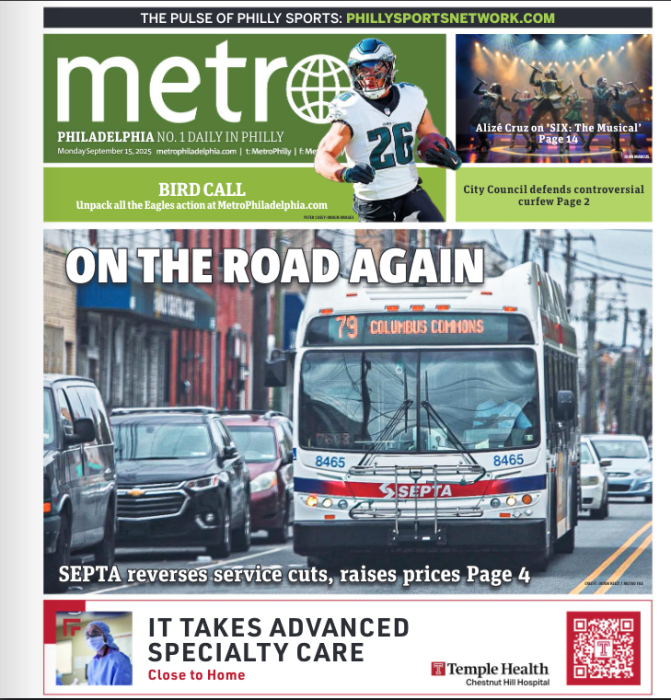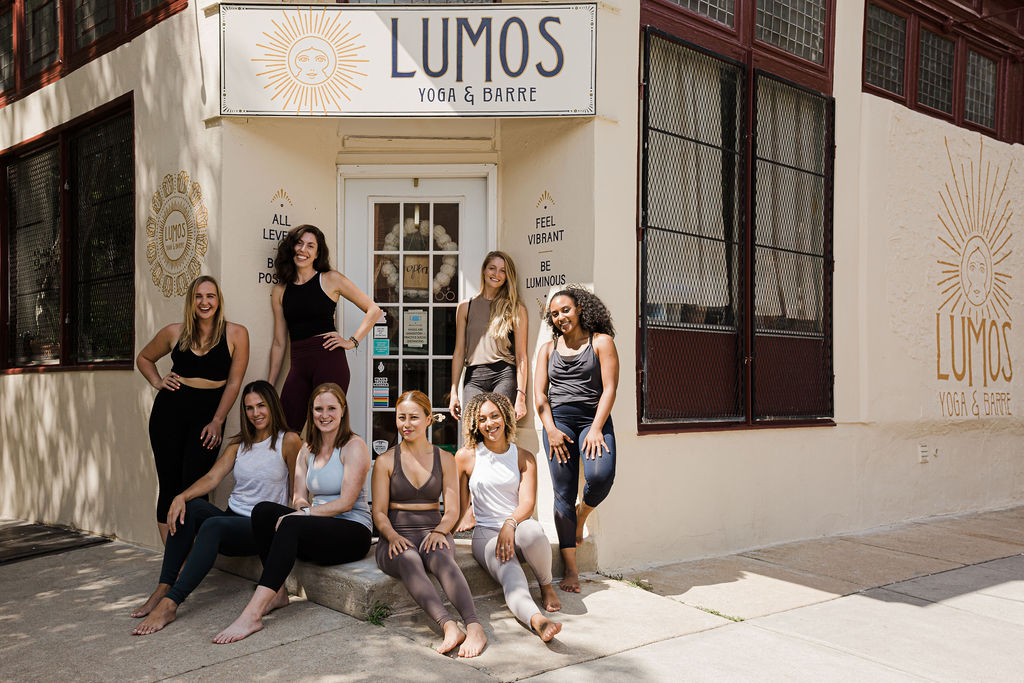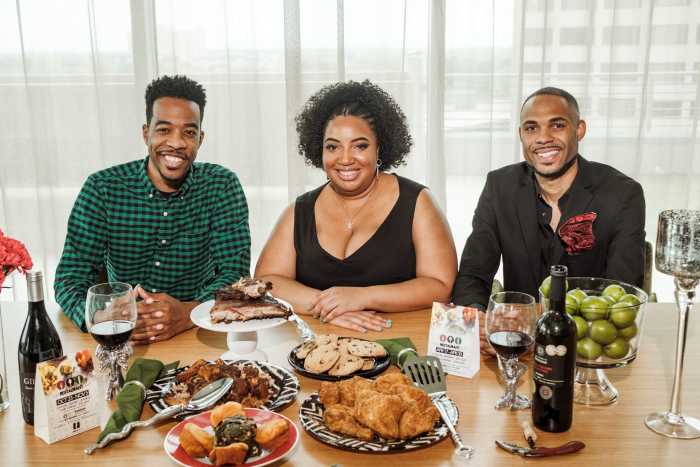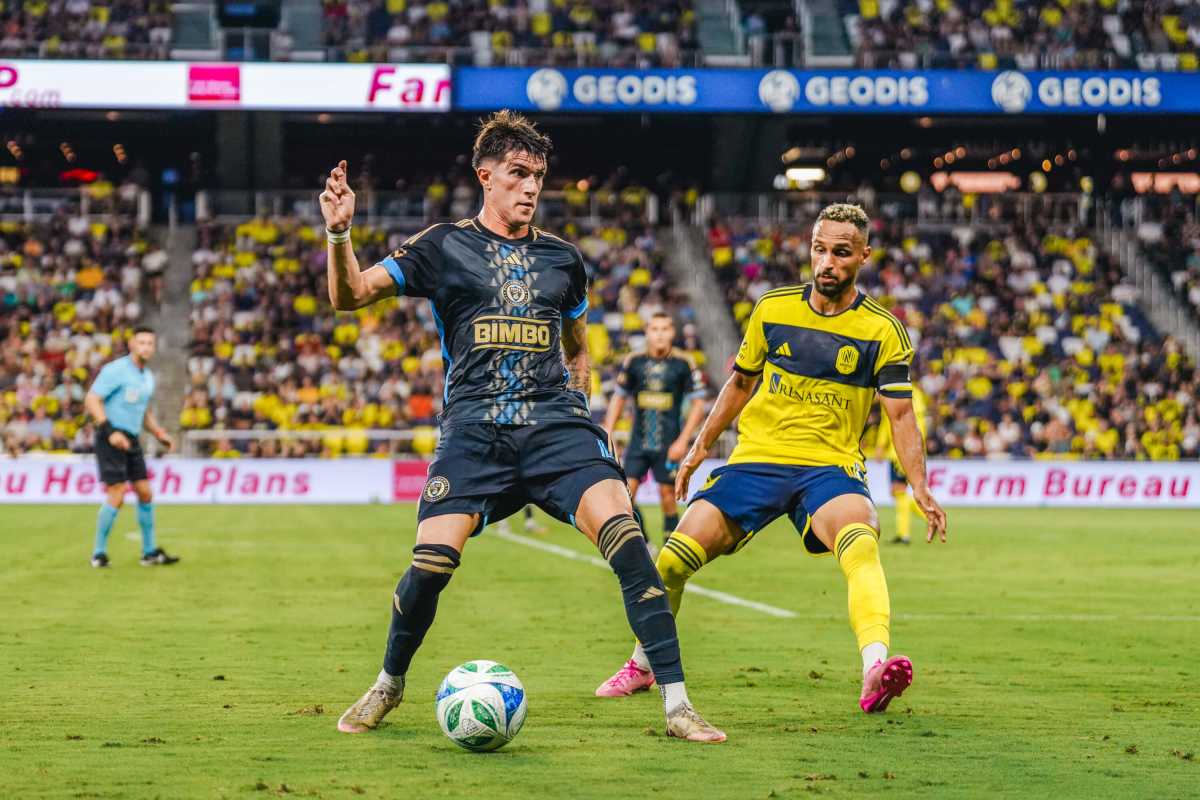No one could have predicted what the year 2020 would hold, especially small businesses. The hospitality industry was certainly hit hard, but the fitness industry also suffered major losses during the effects of COVID-19. With strict restrictions being placed, taken away and then placed again, it’s been a rollercoaster of emotions for some owners.
“It’s been a lot of things — frustrating, scary, stressful, to name a few,” says Jessica Benhaim, owner of Lumos Yoga & Barre, located in Fairmount. Lumos offers Philadelphians different type of fitness exercises ranging from barre to sculpting yoga to HIIT classes and beyond. “When we closed our doors in March, we had no idea it would be for months, and that we’d basically have to change our whole business model to incorporate outdoor and virtual classes.”
Luckily, stretching in class isn’t the only type of bending Lumos offers—the workout hotspot also was able to mold some of their offerings inventively in the past before the pandemic in the form of special events, pop-up classes and collabs with other local businesses. Now, sticking to that tune of creativity, the studio has shifted what they offer to incorporate the “new norm.”
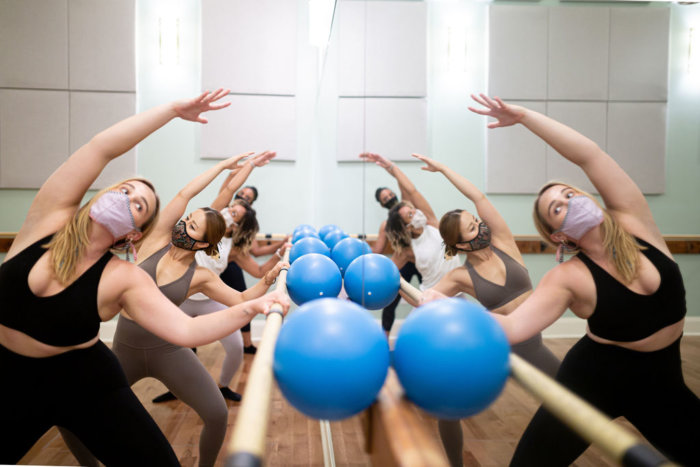
“During the pandemic, we began to offer weekly outdoor classes, and were able to offer pop-up collabs with other area studios. Fitness studios collaborate occasionally, but with COVID, there’s been more of a sense of ‘we’re all in this together’ versus being concerned about the competition. We’re planning to offer a variety of outdoor classes again in the spring, and will announce any other pop-up events, either virtually or outdoors,” explains Benhaim. “We’ve [also] updated our reopening guidelines with the latest information from the city, so there have been some changes from our August reopening to now (for example, class capacity limit changed from six attendees to four). Winter is also part of the regular cold and flu season, on top of the pandemic — so if you don’t feel well, please stay home.”
Taking numbers into account, class sizes are not what they used to be, and Lumos is even integrating safety into their own regiment (“We’re asking our staff to do the same, so please be understanding if we can’t find a sub for classes and have to cancel a class,” notes Benhaim), but even so, that means that your typical class at Lumos will look different than before.
“As you can probably guess from the class size note, a capacity limit of four attendees per in-studio class isn’t a lot. Right now we’re focusing on offering a mix of in-studio and virtual classes, so everyone can find something they’re comfortable with, and then we plan to add outdoor back in this spring. We know that it’s going to take some time for people to figure out their comfort level with fitness classes, so please feel free to reach out to us if you have any questions or concerns, or would like to see something on our schedule,” says Benhaim.
The hardest part for the studio? Despite having the same needs as some other industries, fitness businesses have a few more hoops to jump through. PPP loans for example are meant for employers, while most instructors are independent contractors.
“Studios have taken it upon themselves to band together in some ways to discuss how we’re making things work,” says Benhaim. “We also joined the Philadelphia Fitness Coalition to demonstrate to local officials how the fitness industry is different from other industries it’s been lumped together with, like casinos and recreation.”
The PFC, similar to Save Philly Restaurants, was created as an answer to the problems COVID posed for fitness studios. The main argument of the initiative is that fitness studios were placed in the same category as other businesses without “logic, data or prioritization of community fitness and wellness.” It’s with efforts put forth by organizations such as the PFC and the community that have acted as the lifeblood for places such as Lumos.
It might seem a bit cliche to talk about silver linings, but thankfully, Benhaim has a few of them to combat the obstacles 2020 hit the industry with.
“While navigating through all of this as a small business has been difficult, a bright spot has been our team of amazing and dedicated instructors who pivoted along with the studio each time. I’m also so grateful to the community that has come together to support our neighborhood studio,” explains Benhaim. “The most positive thing is hearing from our clients how much they appreciate us still being here, offering classes. At the end of a class when people thank the instructor and tell them how much they needed this hour of practice, or send an email to us saying thank you, or leave a glowing review — it makes this all worth it.”
As an all-levels-welcome, body-positive studio, Lumos, which is related to the Latin word for “light,” encourages people to feel vibrant and be luminous, and to hep keep their very own glow, Benhaim has an incentive for all Philadelphians.
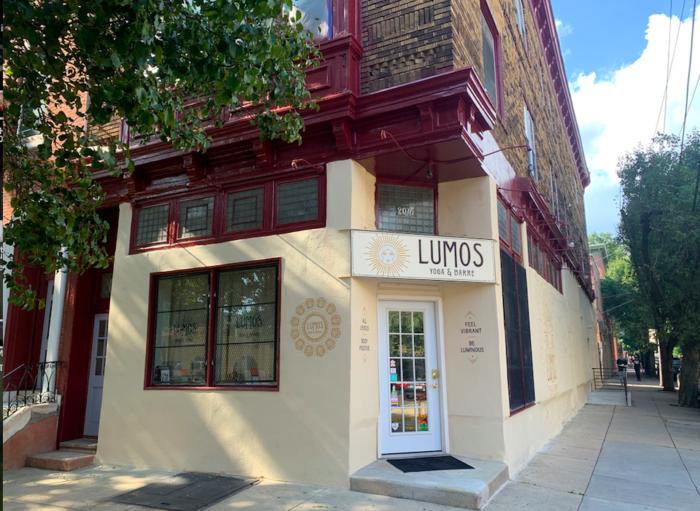
“Please continue to support small businesses like Lumos. The best way people can support businesses now is by patronizing them, and many studios offer an option that fits with everyone’s comfort levels—for example, we offer livestream classes, in-studio classes, outdoor classes starting in the spring, and an on-demand subscription. We also have a retail shop of yoga and barre apparel and accessories, plus some self-care items like Mishal candles + body butters and Lord Jones CBD products. If you personally don’t need anything, do you have a friend you can shop for and gift them a little something? I’ve gotten snail mail gift packages from friends who I normally would see but haven’t been able to this year, and it’s a great way to support a small business while doing something nice for someone else. ”
To learn more information about Lumos Yoga & Barre, visit lumosyogaandbarre.com
